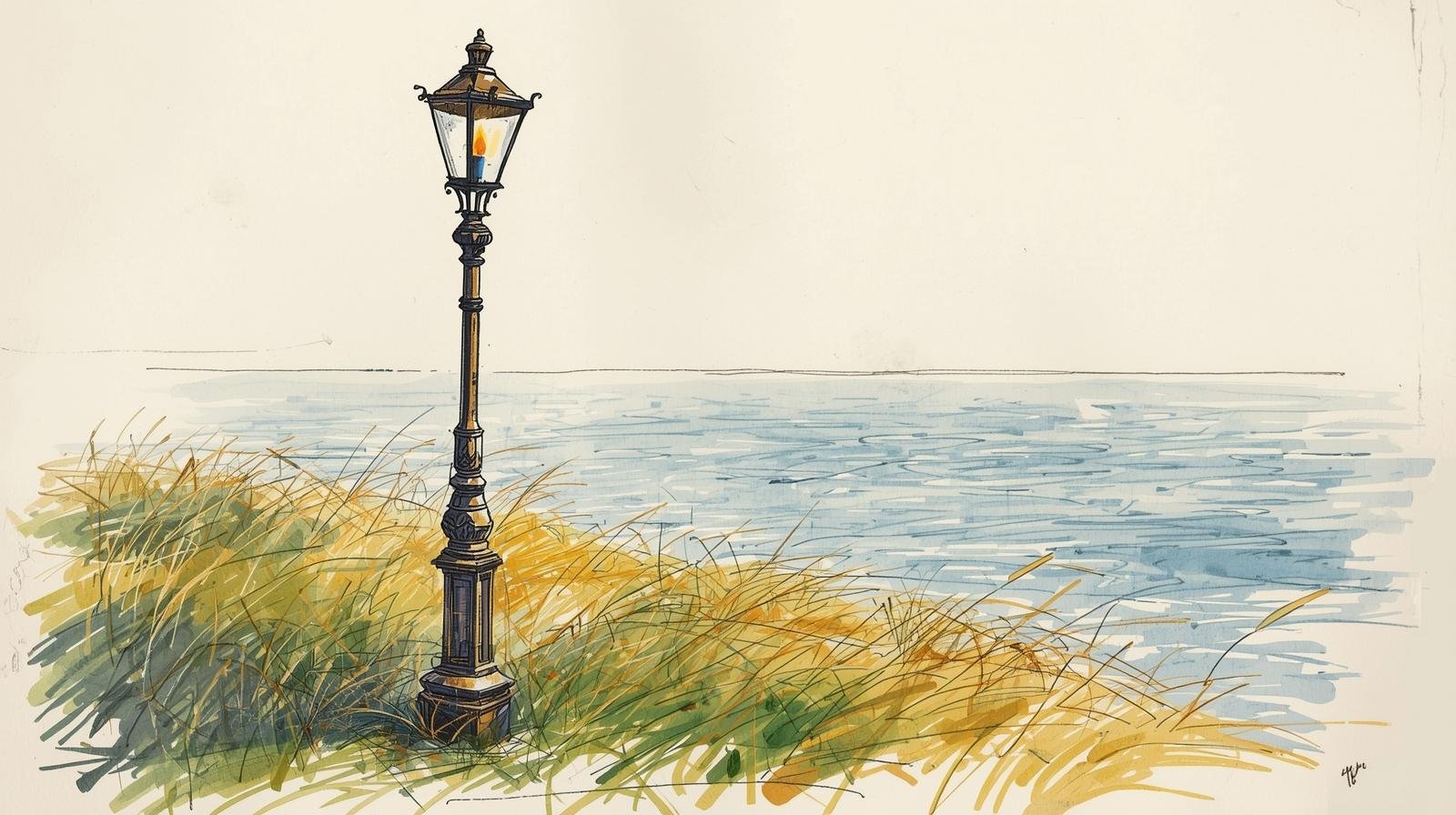New York, January 26, 2020. | III Sunday in Ordinary Time.
by f. Luis CASASUS, General Superior of the Idente missionaries
Book of Isaiah 8: 23.9,1-3; 1 Corinthians 1: 10-13.17; Saint Matthew 4: 12-23.
I remember how, many years ago, our Father Founder shared with several young missionaries what obedience meant to him: I do not want to take a single step if I do not see that it is God’s desire.
I must confess that in my immature youthful mind this seemed an impossibility, something that “sounded good”, but it had little to do with reality, at least with mine, full of doubts, temptations and a multitude of worldly matters that attracted me.
But the life and words of the Founders ooze truth. And today’s Gospel confirms that the Kingdom of God is near, at hand, and that we always have the possibility of knowing his will and, in that way, of passing from darkness to light. The “kingdom of heaven is at hand” when we turn from darkness and not only walk in the Light but in that manner, we become that light ourselves.
The Spirit of the Gospel is an aspect of our prayer that consists of continually looking at the person of Christ and, in that way, learning to respond to any challenge, any threat, and any doubt that may arise. We can illustrate this with an anecdote:
There is a story of a mother who tore off a full-page world map from a magazine and shredded it into pieces. She then asked her five-year-old daughter to put the map together. In a few minutes, the little girl did it, which astonished the mother. When she asked her daughter how she pieced the map back so quickly, the little girl explained that on the reverse side of the page was the face of a man. You see, Mommy, when I got the man’s face, the whole world came together.
St. Matthew summarizes in three actions the mission undertaken by Christ: Teaching, that is, being light for every person; Preaching the Good News, that is, demonstrating that God’s love is stronger than evil and Healing the sick, which means giving the concrete opportunity to be fruitful, to bear fruit despite moral, physical or cultural limits.
This Sunday’s Readings invite us to reflect on how to respond to our vocation, to the call that God makes to each of us as personally as he did to the four fishermen of the Sea of Galilee. Let us highlight three aspects of a true disciple’s response.
1. The apostle’s urgency.
Jesus left Nazareth when He heard that John had been arrested. It was a painful moment for Him. Jesus did not waste time or delay any longer to continue what John the Baptist had started, namely, to call His people back to God. An ominous sign of terrible things to come appeared on the horizon.
On more than one occasion, this happens to all of us in our lives. In the moments when we need the most comfort and support, we understand that it is up to us to help someone, to change the direction of our efforts and to pay more attention to the pain of others than to our own. We cannot think of this as a pure coincidence or just bad luck. Rather, it is an act of trust by God, who asks us to respond with the same confidence to Him: the entrusted mission does not depend simply on our strength but they depend also on His presence and His grace.
Probably Jesus knew John’s arrest was coming, and that its occurrence was just a matter of time. And so his journey to the coastal town of Capernaum must have been a moment of prayer intended to come to terms with the challenges that awaited Him. His decision to call Simon and Andrew to follow Him after the arrest of John the Baptist was a statement of faith and hope and a gesture of freedom in the face of cruelties of life. He did not wait to have a fully trained team or an optimal time for his message to be received. John the Baptist’s enemies had sought to silence him, but the good news of God’s kingdom of salvation cannot be silenced. This is the way Jesus lives out the same thing he announces us: The kingdom of heaven is at hand, nothing can stop it.
It is striking how Simon, Andrew, John and James, the four fishermen Christ called, react with the same urgency and diligence as Jesus. They were not sitting on their hands, but fishing and mending their nets. They were not alone, but with their families and co-workers. But they understood that God was calling them to something greater and indispensable to their fellowmen.
Christ started assembling a group of people with wounded souls and broken wings and set their hearts on fire with a dream that conquered their fears and made them understand that they were part of a project that is larger than their dreams. The enthusiasm for the kingdom of heaven, the inspiration that drives the apostle, is contagious when it is not contaminated with the affairs of the world. For this reason, we will now consider the second visible characteristic in the life of the true apostle.
2. Repentance and abandonment of the world.
This radical attitude is not simply the result of the more or less determined character of a disciple. It is, on the one hand, a necessary condition for God to choose us as his instrument and, on the other hand, the result of the purification carried out in us by the Holy Spirit.
Jesus proclaims today: Repent because the kingdom of heaven is at hand. Repentance begins with the perception of the deadly fruits and darkness of sin. This is reflected in the Didactic Lesson of our Ascetical Examination. But it is not just a perception or idea, nor is it simply a kind of pain or shame. It is an element of unitive prayer, which truly transforms us and moves us from darkness to light. What was invisible to our eyes, appears clearly; the sad consequences of becoming slaves of our character. That vision is so clear that it prepares our hearts to welcome the divine plans for our life.
Converting oneself is not equivalent to becoming a little better or doing more good work but to radically change the way of thinking and acting. One who moved in darkness has to turn towards the light. This is the way we are entering, conversion after conversion, more and more into the Kingdom of Heaven.
The light-darkness conflict continues, waiting for the endless day when there will be no more night (Rev 22:5), but we receive continual gifts for that inner miracle that has outward consequences. These gifts are so powerful that they demand our full attention. It is like flying a supersonic aircraft at 60 feet above the ground or a judo fight between two great champions. Is it possible to have the least distraction?
Christ promises to make his new disciples fishers of men. We must NOT assume that He spoke in this way just so that the fishermen would understand Him. A good fisherman possesses some qualities that Jesus wants when he calls us to become fishers of men. Of course, this is not simply a matter of staff selection, but of welcoming and accepting the gifts that the Holy Spirit bestows on those who are willing to serve. Being fishermen is the way Christ describes the necessary abandonment of the world for a disciple.
* A fisherman learns to wait patiently until the fish will take the bait. If he is restless and quick to move, he will never make a fisherman. The good fisher of men must have patience. He is not discouraged when nothing seems to happen.
On one occasion, a son complained to his mother by saying: I have stopped going to the church for two reasons: I do not like the people and the people do not like me. The mother gazed at him and consoling him by saying: My son you should go back to church for two reasons: you are already fifty years old… and you are the parish priest.
* A fisherman has courage. He is ready to risk and to face the fury of the sea and gale because he knows that he is not alone in the struggle and that the mission of drawing others closer to Christ is the greatest possible good that we can do for them. The disciple of Christ does not fear the waves even when they are raging. He does not give up hope to save a brother, even when he is in a humanly desperate situation: a slave of an unbridled passion, irascible, aggressive and intractable character. In whatever situation he is, he will be saved by God, who will use for that the humble effort and testimony of the disciple of Christ.
* A fisherman has an eye for the right moment. He knows that there is a time to speak and a time to be silent, but at all times praying for the people he wants to bring closer to God. He knows how to fit the bait to the fish. One fish will rise to one bait and another to another. He knows that the same approach will not win all men. Surely he must know and acknowledge his limitations. He may have to discover that there are certain spheres in which he himself can work and others in which he cannot.
* And, most important of all, a good fisherman does not try to make himself seen, but rather makes himself small, with authentic humility, so that Christ is visible. If the fisherman projects his presence, even his own shadow, the fish will certainly not bite. This was the style of St. John the Baptist: He who comes after me has a higher rank than I.
In biblical symbolism, the sea is the dwelling of the devil, of diseases and everything that opposed life. In the sea, the monsters lived and in it, even the most skilled sailors did not feel safe. Fishing people means to get them out of the condition of death where they are, to pull them out from the forces of evil that, like the raging waters, dominate, engulf and overwhelm them.
The abandonment of one’s father does not mean that anyone who becomes a disciple of Christ or chooses the consecrated life must ignore one’s parents. In the Jewish culture, the father was the symbol of the link with the ancestors and attachment to tradition. And it is our dependence on the past that must be broken when it constitutes an impediment to welcome the novelty of the Gospel. Not all the habits, customs, traditions or morally neutral activities are compatible with the message of Christ. As we said at the beginning of this commentary, everything that is not God’s desire is incompatible with the Gospel.
3. The sense of unity.
Some of us give the impression that we know everything, that we always have an answer to any question, that we are above other people who work for others: religious, Church authorities, followers of other charisms or doctrines. This is especially serious in the case of superiors or those who have some responsibility and representation.
These are manifestations of lack of unity, such as micromanagement, resistance to delegating, impatience with our collaborators or negligence in communication. But the consequences are not limited to malfunctioning and lack of organization. The real problem is the scandal of our divisions and the loss of apostolic opportunities, as we see in today’s Second Reading. The Corinthians forgot that the apostles are not the masters but servants; they are not the saviors; the Savior is only Christ. What causes a lack of unity and discords is the desire to dominate others, to prevail among others, and to impose oneself on others.
—oOo—
Bruised and flawed though we are, all of us are called to a vocation of fruitfulness. Even the crises and setbacks we face could serve as our turning point to do something more remarkable and more selfless than doing what we are good at. God has many ways of turning us into fishers of men.








